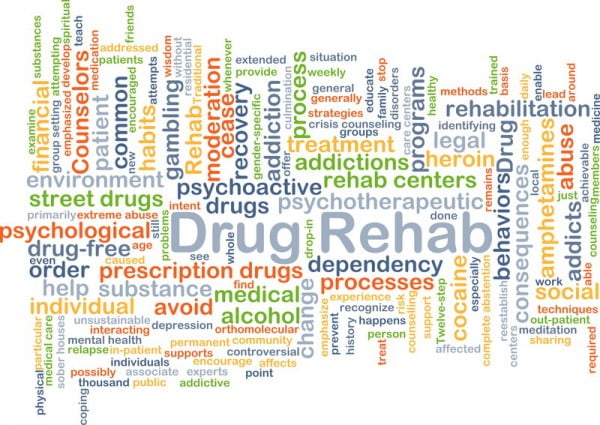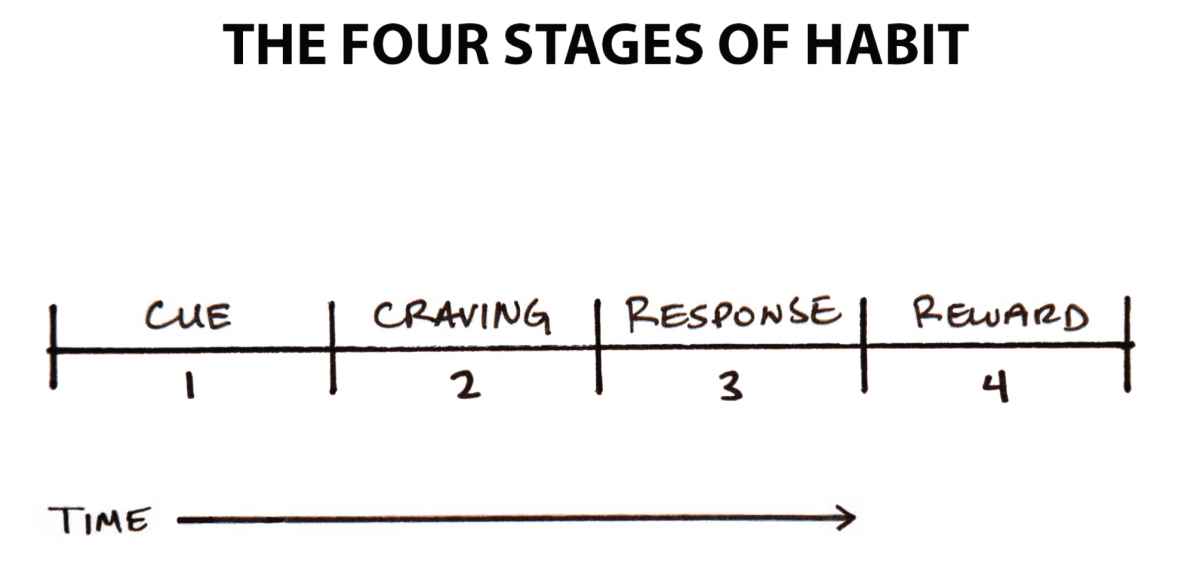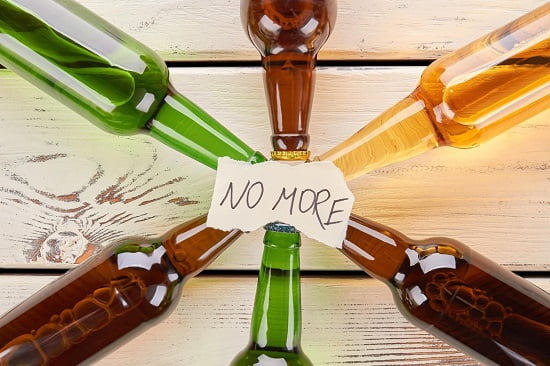It’s not always easy to stop drinking. You may even be feeling like you’ll never be able to do it and that the addiction is too strong. Quitting alcohol for good can be hard. It is not easy to do it by yourself. But with the right support system, quitting will become a reality! In this article, we tell you 5 ways to stop drinking alcohol.
Contents
How Do I Stop Drinking?

Overcoming an alcohol addiction may be a long and winding path. It may even feel impossible at times. But it isn’t. You can recover from alcoholism and alcohol abuse if you’re ready to quit drinking and prepared to seek the help you need—no matter how much you drink or how powerless you feel. And you don’t have to wait until you’ve reached rock bottom to make a change; you can make a change at any moment. These tips will help you get started on the path to recovery today, whether you want to quit drinking entirely or cut down to healthier levels.
Evaluating The Costs And Benefits of Drinking
One of the first steps to take when you’re thinking about stopping drinking is actually a simple but crucial one. Take a good look at your life and how it’s being affected by alcohol. If you use alcohol, you may be surprised at how much better your life can be by not drinking anymore. Alcohol takes up time and energy. If it wasn’t, what could you do with your time?
- Benefits of Drinking Alcohol: Alcohol has psychoactive properties, which can alter brain chemistry. The drug acts as a depressant by slowing down the activity of neurotransmitters in the central nervous system that control mood and behavior. Alcohol also reduces anxiety levels through its anxiolytic effects (reducing tension).
- Benefits of NOT Drinking Alcohol: Alcohol is the most used and abused drug in Australia. It can be highly dangerous to both your physical health, mental wellbeing, and social life. This substance reduces inhibitions. When people drink, they might act in a way that is not good for themselves or others. This then affects their lives in other ways. Alcohol abuse has been linked with high-risk behavior and risky sexual activity.
- Costs of Drinking Alcohol: In addition to the health benefits of not drinking, there are also many costs associated with alcoholism. Alcoholism can lead to money problems. You might spend too much money on alcohol or drugs. This will mean that you lose your job, or come into work late because of drinking. Alcoholism can also make you do things you later regret. For example, blackouts sometimes happen when people are drinking heavily.
- Costs of NOT Drinking Alcohol: Alcohol is bad for you. It can make you sick, make you an alcoholic, and cause problems with relationships. It also causes crimes and anti-social behavior. Not drinking also means that you are more likely to have a better quality of life, feel healthier, and be able to focus on your goals.
Set Goals And Prepare For Change
Before you commit to quitting drinking, it’s important that you set goals and prepare for change. These tips will help:
- Be specific about what your goals are—and think in the short term. It can be helpful to make a list of reasons why you want to stop or cut down on alcohol use. This way, when you get tempted, you can remind yourself of your goals and what’s important to you.
- Take a look at the chart below. If alcohol is hurting your life, think about how much you should drink. You should not wait until you are very drunk before changing something in your life that is bad for it.
- Explore alternatives when drinking is no longer an option.
- If you want to stop drinking, be ready for when the temptation comes. Friends who don’t drink can help you not drink. Other things that might help are exercising and meditating.
- Be honest about your struggles with others.
Cutting Back vs. Quitting Alcohol Altogether
People who drink responsibly and in moderation can usually do so without giving up alcohol altogether. People who choose to cut back on their drinking, rather than quit entirely, may find that it’s easier to moderate this way because they’re not surrounded by temptation every day.
- Set your drinking goal: If you decide to cut down on your alcohol intake, don’t forget that it’s okay if you slip up and drink more than planned. Use these times as opportunities to reflect on the costs and benefits of drinking excessively; this way, when you feel like having a few drinks again in the future, you’ll be able to make better choices.
- Keep a record of your drinking: If you’re struggling to cut down, it’s a good idea to keep track of how much you drink. This will help you identify when and where problems might be arising so that you can work out ways to reduce them in the future.
- Write about what your goals are for not drinking alcohol: Think about why cutting back or quitting altogether is important to you. Is it because of a health reason? Do you want to be able to focus on your goals and live your life free from addiction issues? Maybe it’s for family reasons, or perhaps there are financial consequences that have made not drinking seem like the right choice.
- Schedule one or two alcohol-free days each week: Some people find that setting an alcohol-free day or two each week helps them to cut down. If you struggle with binge drinking, this can be a great way to avoid feeling deprived—and it may also help reduce the chances of having blackouts and making bad decisions while intoxicated.
Maintain Your Motivation
If you slip up or have a ‘bad day’ where you break your rule, don’t let it derail all the progress that you’ve made. If you slip up or have a ‘bad day,’ simply start again tomorrow—don’t give up on yourself because of one bad decision!
Brainstorm Why Drinking Is Important To You
Ask friends and family members for their support—and be sure to ask what you can do in return, whether it’s having their check-in on your progress or lending an ear when they need support.
Alcohol Addiction Treatment Options
If you feel that your drinking habits have gotten out of control or are causing severe issues in your life, it’s important to get professional help. There are a variety of treatment options available for people who want to stop drinking and overcome addiction—including group therapy, medication-assisted detox programs, outpatient care with counselors and therapists, rehab centers, and more.

- Residential treatment: Residential treatment can be a good option for people who have been drinking too much and want to stop. It is supervised and safe. Inpatient rehab centers offer care and support 24 hours a day. This can be helpful for people who need to learn new skills like coping. They also have professionals that specialize in addiction issues and can help with therapy and counseling.
- Partial hospitalization: If you cannot stop drinking or need more help, a partial hospitalization program may be a good option. You will get the same services as inpatient rehab centers but can leave at night to go home.
- Group therapy: Group therapy is good if you are concerned about your privacy. It can be helpful to talk to others who are also trying to get sober.
- Medication-assisted detox: Some people need to go to a medical detox facility if they have a severe alcohol addiction, depression, and anxiety. This helps people who are addicted to alcohol safely stop drinking. Medications may help too.
- Counseling: With individual therapy or group counseling, you can stop drinking. These treatments help people find the root of the problem that led to their drinking. They also teach them coping strategies and how to be sober.
- Intensive outpatient programs (IOP): IOP addiction rehab programs are a good choice for people who can’t take time away from their jobs and families. These types of treatment allow people to participate in group counseling sessions on evenings or weekends, which makes it easier than other options that require full days at the facility. By removing barriers like childcare and scheduling, IOP programs can help in leaving alcohol addiction.
Action Plan For Triggers and Cravings

Lastly, you need to have an action plan in place for when you feel triggers or cravings. You will have withdrawal symptoms that are different for everyone. This is what happens when people try not to drink. Triggers are things that remind you of drinking, like people, places, things, emotions, and situations.
Avoid The Things That Trigger Your Urge To Drink
When you have a craving to drink, stay away from the things that might trigger it. One way to do this is by staying at home or bringing non-alcoholic beverages with you when you are going somewhere where there will be alcohol. You can avoid drinking when you stay away from people or places that remind you of drinking. If your friend is a heavy drinker and they pressure you, then it is time to stop spending time with them and to spend more time with new friends who understand your desire to maintain sobriety.
Practice Saying “No” To Alcohol In Social Situations
It is important to say no to alcohol in social settings. If you’re worried that saying no will cause tension and end friendships, remember that it’s your life and you can make decisions for yourself. Some friends might be angry with you but others may understand.
Take Time For Yourself
If you are trying to stop drinking, it is important to take time for yourself. You can do this by taking care of your body with exercise, relaxation, or even reading a book. When you are trying to stop drinking, it can be helpful to join a group of people who are also stopping.
Talk To Someone You Trust
If you have been drinking too much, it can be hard to talk about it with someone. But if you do, they will care about your well-being and listen. You may cry or feel overwhelmed when you first talk to someone, but that is okay because they understand what you are going through. The most important thing is for you is to open up about your struggles and be honest about them.
Accept Support From Others
To stay sober, it is good to have friends and family who will help you. They can be there for you when you are not feeling well. Friends or family members can want the best for you but do not know how to help.
Conclusion
Achieving sobriety is not an easy task and takes a lot of dedication, but it can be done. You just need to find the right support system and stick with it for as long as you need. If your addiction has gotten so bad that you feel like there’s no way out, we’re here to help! Our staff are trained in helping people through this process and will do everything they can to get you back on track.
For more information, please contact MantraCare. Addiction is a chronic and often relapsing disorder characterized by compulsive drug-seeking and use despite harmful consequences. If you have any queries regarding Online Addiction Counseling experienced therapists at MantraCare can help: Book a trial Online therapy session


